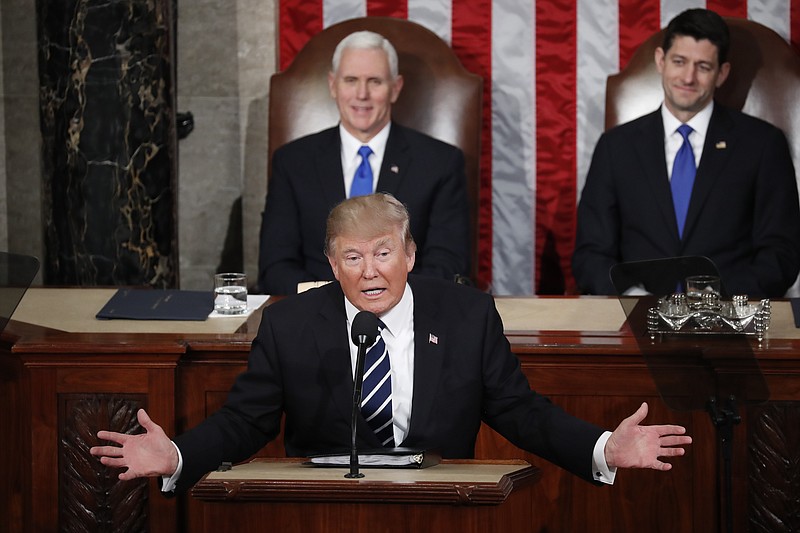The Democratic architects of Obamacare knew full well that when they offered Americans an entitlement to which they were not entitled in 2010, it would be tremendously difficult to remove it.
Republicans made symbolic efforts to get rid of the unpopular health care law during the administration of the man who proposed it, but those efforts were never going anywhere because President Barack Obama was always at the end of the line with his veto pen.
Despite the broken promises, the lies about the law's costs and the drying up of its insurance markets, the millions who gained medical coverage - almost nine of 10 with government subsidies - had something to which they now felt entitled. The government promised, they'd say. How can they take it away?
Yet, critics salivated. If we just had a Republican president and a Republican Congress, they dreamed, we could get rid of the hugely expensive law - costing $390 billion in 2017 but $500 billion in 2022 - once and for all.
Now the country's got that - a Republican Congress which promised, if it ever had the chance, to repeal and replace the law, and a Republican president who vowed on the campaign trail to do the same thing.
But undoing the labyrinthine law and making sure all those with health care have access to something is complicated, a complaint President Donald Trump made last week that played right into the hands of lawmakers who want to keep the health care law.
"Now, I have to tell you, it's an unbelievably complex subject," the president said. "Nobody knew health care could be so complicated."
Actually, everybody knew it. Because first and foremost, nobody wants to tell the unvarnished truth: Americans are not entitled to health care coverage.
Since that maxim is off the table, the issue becomes either providing a better, cheaper alternative to Obamacare for those who have it or making coverage available to those same people. There is a difference. One intimates the government will continue to be the payer of last resort for those who want coverage (whether it be by subsidies, tax credits or otherwise), and the other indicates coverage will be available for all those willing to pay for it.
The confusing thing is Trump has seemed to favor both, saying in January that his goal for health care reform is "insurance for everybody" and, in his speech to Congress last week, that the country should "make health insurance available to everyone."
Precisely because of the way the Democrats hurried the original law through Congress through budget trickery and sweetheart deals, and had "to pass the bill so that you can find out what's in it," Republicans should be in no hurry to vote for full repeal and replacement.
Yes, that's what voters sent Trump and Republicans to Washington to do, but it's better to get it right than to get it done immediately.
That's why they need to resist the constant drumbeat by Democrats and the media for details of their plan, how soon it will be done and the disasters that will befall individuals once Obamacare is repealed. The new administration, after all, has been in office barely 40 days.
We believe, as Trump said he believed in his speech to Congress, that no one should have to buy insurance if they don't want it. We also believe, as he has said he does, that those who have insurance should not be dropped for preexisting conditions and that grown children living at home should be able retain coverage under a parent's policy until age 26.
Other reforms popular among the president and Republican lawmakers include tax credits, expanded Health Savings Accounts, purchasing insurance across state lines, portability, implementing legal reforms that will drive down costs and giving states flexibility in implementing Medicaid for the state's poorest, sickest and disabled residents.
We don't pretend to know if any or all of those market-based reforms will be in the final bill, but we feel better about those than the failing Obamacare program currently in place. Whatever promises more choice, competition and innovation should be given a serious look.
"We have to find a formula that's fair for everybody as we go through this process," Utah Gov. Gary Herbert, a Republican, said last week. "Maybe that's an impossibility, but we have to get as close to fairness as we can."
Trump has talked about unveiling details of a health care plan this month and understandably has said tax reform is not possible until Obamacare is repealed and replaced. But we believe he and Congress should take their time to get it right, even if tax reform is delayed.
It is laudable the president is trying to fulfill his campaign promises, but he doesn't have to be in such a hurry. After all, that's how we got Obamacare in the first place.
